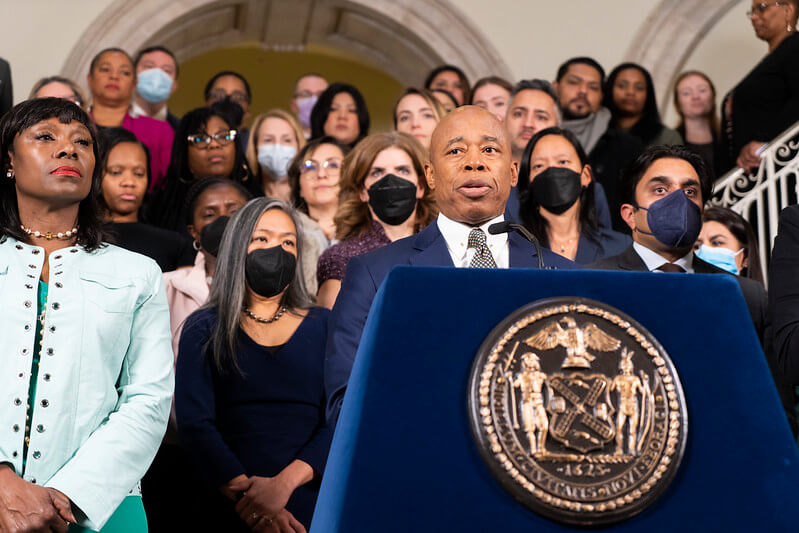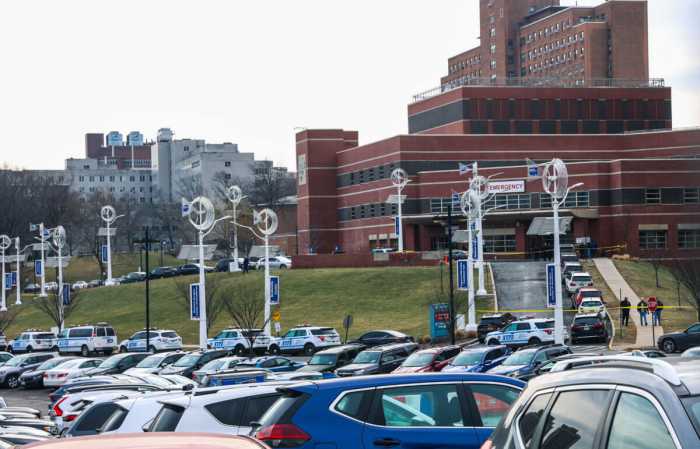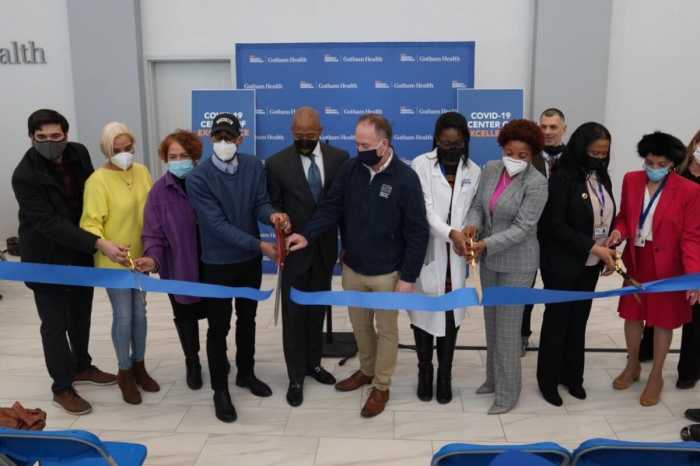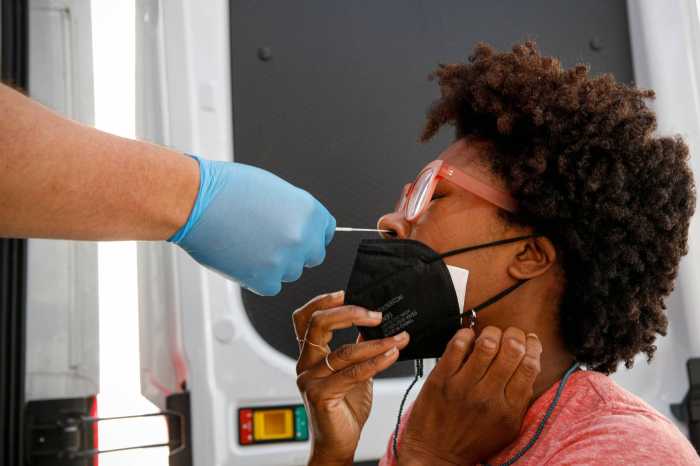Mayor Eric Adams on Tuesday announced the city will start offering abortion pills at four Department of Health (DOHMH) clinics across four of the five boroughs by year’s end, in addition to the 11 city Health + Hospitals (H+H) locations where the medication is already available.
The announcement was one concrete action in a broader address Adams delivered from City Hall Tuesday morning on his “‘New York City Women’s Health Agenda,” a commitment to make bridging disparities in women’s health care a top priority for his second year in office.
The mayor said abortion pills — mifepristone and misoprostol, which are two medications that terminate a pregnancy — will now be available, free of charge, at four DOHMH clinics spread throughout the Bronx, Brooklyn, the Harlem section of Manhattan and Queens.
“We will begin rolling out medication abortion at our city sexual health clinics,” Adams said. “We are already providing medication abortion at 11 public hospitals citywide. And we are expanding the program there to reach more New Yorkers. No other city in the nation or in the world has a public Health Department that is providing medication abortion. And we are going to be the first.”
In his address, the mayor noted that women are disproportionately affected by conditions such as heart disease and breast cancer because of inequities in medical training and quality of service, and that most research is conducted by men.
“For too long, health and health care has been centered around men,” Adams said. “Rivers of racism, social and economic inequality, lack of research in innovation are all feeding into the sea of the gender health gap. The system needs to change. We must do better, and we will do better. Women’s Health needs some intensive care. It’s time we made the city the future of women’s health. And that is exactly what we are going to do.”
The first clinic will open at the Morrisania Sexual Health Clinic in the Bronx on Wednesday, Jan. 18, according to Dr. Leslie Hayes, deputy commissioner at the DOHMH Division of Family and Child Health. The others will be rolled out during the year at Health Department clinics in Jamaica, Queens; Central Harlem; and Fort Greene Brooklyn.
Patients seeking a medication abortion at a DOHMH clinic can either schedule an appointment or walk in, Hayes said. The clinics will be open Monday through Friday from 8 a.m. to 5 p.m., she added, and patients will be evaluated by a physician before being given the medication.
Health Department Commissioner Dr. Ashwin Vasan said medication abortions will be “fully city funded” at DOHMH clinics.
“This is city dollars going to this specific purpose,” Vasan said. “These four sites can deliver up to 10,000 medication abortions a year. And that’s on top of what our public hospital system already does.”
Vasan said City Hall is fully funding abortion access at these clinics because there are barriers to entry when it comes to getting the procedure through the city’s public hospital system.
“It’s clear that medication abortion has been offered through our reimbursable health care system for some time for years,” he said. “There are barriers to entry even if we say we will provide care free of charge, regardless of ability to pay. We see that there are social, cultural and non-economic, if not economic barriers to care, which is the crucial role that our city Health Department public clinics play in filling those gaps for the most marginalized.”
Vasan added that, similar to the city’s Abortion Access Hub, medication abortions will be available to anyone across the country seeking the procedure at one of the four Health Department clinics.
During his address, the mayor also announced his administration will immediately start tracking data on women’s health in the Big Apple, including rates of cancer, mental health issues and heart disease. They’ll report on the findings, he said, and use them to better guide the work of city agencies regarding women’s health.
Additionally, Adams said he’ll convene a summit in March of leaders across several sectors — including health care, business and tech — to shape a “comprehensive” women’s health agenda, which will then be released the next month.
“There’s going to be a list of policies that we want to roll out after getting folks in the room,” Adams said. “We did not want to dictate. It’s time to really hear from those private, nonprofits, medical experts [who] have been talking about this for years. We want to get everyone together to resolve that. And then we want to produce a document, based on what happens at the summit.”




































